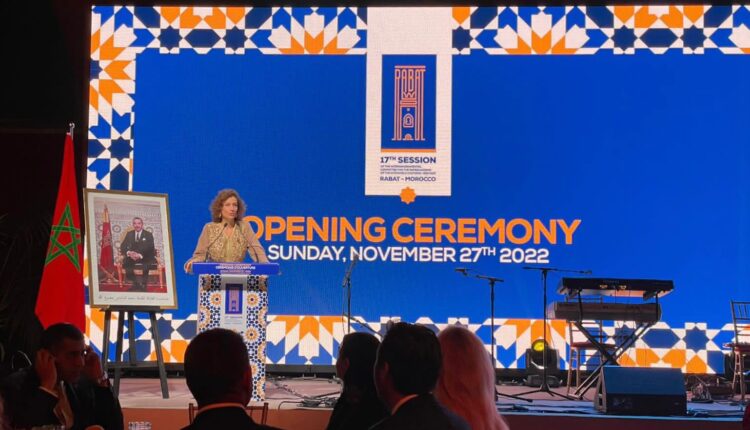King Mohammed VI encourages countries to combat illegal attempts to attack their civilizational and cultural heritage.
In a speech delivered this morning in Rabat to the 17th session of UNESCO’s Intergovernmental Committee for the Safeguarding of Intangible Cultural Heritage, King Mohammed VI urged countries to oppose attempts to trespass on their cultural heritage. He stated that since the Intangible World Heritage Convention entered into force, this mission has become an important challenge in international relations, requiring “addressing attempts to illegally target the cultural and civilizational heritage of other countries.”
In the statement, delivered by Mohamed HAJOUI, Secretary-General of the Government, he stated that “it has become vital to work to emphasize the radiation of intangible heritage accessible to nations and to come up with methods to protect it, by promoting the purposes of the Convention.”
Morocco has been determined to adhere to this since the agreement’s ratification in July 2006, he added, adding that there are now 11 things registered on the World Intangible Heritage list, the most recent of which is the art of “Tbourida,” which was recorded last year.
According to the royal letter, the decision of Rabat to host this forum is not accidental, but rather “a result of the tremendous cultural brightness of this old city, which is considered a world cultural gateway.” It has been selected as the African Cultural Capital for 2022, as well as the Muslim World Cultural Capital for the same year.
Its unique geographical location has made it a crossroads for “various civilizations, Phoenician, Roman, Islamic, Andalusian, and European,” earning it UNESCO World Heritage status in 2012.
He stated that this session is taking place nineteen years after the Convention on Intangible World Heritage, which has resulted in significant development in many areas relating to intangible cultural heritage.
The convention’s signatories now approach intangible cultural heritage concerns from a singular perspective focused on “protection, development, and appreciation.”


